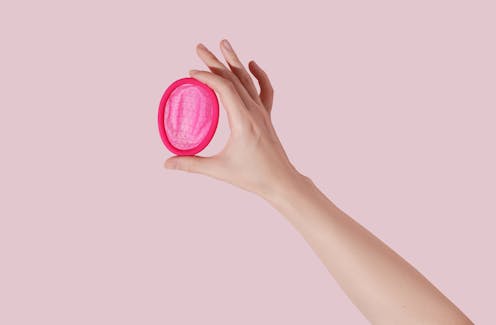How much period blood is 'normal'? And which sanitary product holds the most blood?
- Written by Phoebe Holdenson Kimura, Lecturer and GP, University of Sydney

Heavy menstrual bleeding or heavy periods affect up to a quarter of women and people who menstruate, and can impact quality of life. Women who have had heavy periods for a long time often consider this normal, or something to be simply put up with.
Diagnosing heavy periods has traditionally been based on the nature of bleeding. Women might describe bleeding through clothing, having to change pads and tampons every two hours or sooner, or passing clots larger than a 50 cent coin. Doctors consider a woman to have heavy periods if she regularly loses more than 80 millilitres of blood during one menstrual period. That’s four Australian tablespoons’ worth. Women diagnosed with heavy bleeding should follow up with their doctor to establish the cause of their bleeding and guide treatment.
But estimating blood loss and getting a sense of when it’s outside the normal range can be difficult. Recent research on how best to manage menstrual blood could help.
Read more: Heavy periods are common. What can you do, and when should you seek help?
More period options than ever
There are now a variety of menstrual products for women to choose from.
These include disposable pads and tampons, as well as reusable products such as menstrual cups and discs, washable pads and period underwear. There are multiple factors which influence choice of menstrual product, including comfort, cost, capacity, environmental benefits and potential health risks.
A 2022 French survey of over 1,100 women showed traditional sanitary protection was still the most widely used there (81% used disposable pads and 46% used tampons) but 16% of respondents were using alternative products. A recent study in Victoria indicated many young people are choosing reusable products, with environmental impacts an important motivator.
Another benefit of reusable menstrual cups and menstrual discs is they can remain in the vagina for up to 12 hours. A menstrual cup sits in the vagina below the cervix and extends into the canal. A menstrual disc, on the other hand, fits back into the vaginal fornix, which is where your vaginal canal meets your cervix. Discs are usually wider and shallower than cups and can be worn during sex. There are now reusable and disposable options for menstrual discs.


















